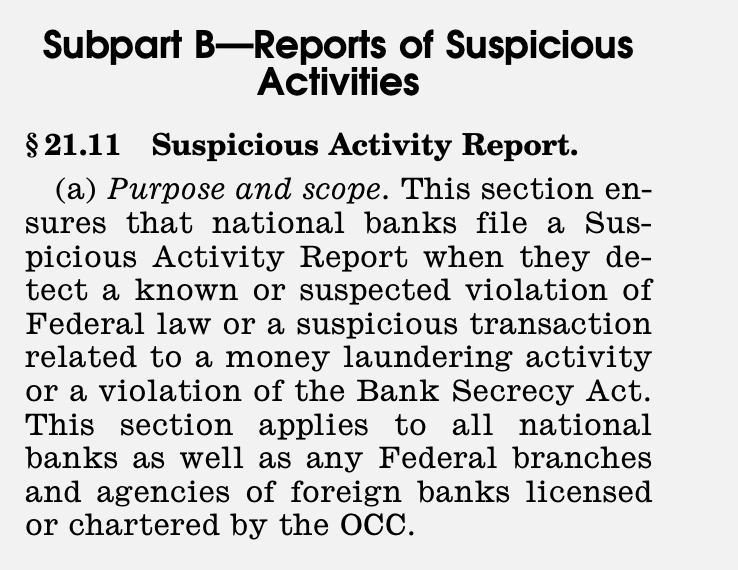Table of Contents
We all know …
MAGA cult members, if pressed, would admit to willing to accept as fact that their guy can walk on water, if Donald asked them to take it on faith. With his mounting judgment debt, though, the more relevant question, legally, is what happens when he goes in the tank.
To "go in the tank" is law slang for insolvency leading to a bankruptcy proceeding, either voluntarily or involuntarily.
DANGER WILL ROBINSON™️
I am going to talk about the New York law of appellate bonds and the nationwide bankruptcy law in connection with the recent judgments against Donald J. Trump,
I am admitted to practice before the bar of state courts of the State of California and certain Federal District Courts there only. I am not admitted to the bar of the State of New York or any other jurisdiction. By terms of my inactive status with the California Bar, I am not permitted to, and do not, hold myself out to the public as an attorney duly licensed to provide legal representation or advice. Do not rely on what I say in connection with any anticipated or pending legal matters. Consult a legal adviser duly licensed in the relevant jurisdiction to advise you.
Read and follow label directions, do not read on an empty stomach or in a state of emotional arousal.
You've been warned.
Who's talking
I'm an experienced corporate finance lawyer with additional experience as an administrative law judge and a grand juror in Federal District Court for the Northern District of California. I have good legal research skills, although I am handicapped by lacking access to the professional grade online research tools. I've consulted sources that I deem reliable and provide citations to primary sources, such as statutes, where I believe that readers would benefit. Some content was drafted by AI and reviewed by me and represent my view.
The Windup

Donald J. Trump has been on the losing end of recent cases, incurring an adverse judgment of approximately $83 million for defamation and approximately $455 million, including pre-judgment interest, for business fraud in violation of New York state law. He already has cash in escrow with a court in the amount of $5 million for a defamation verdict last year.
Trump has until approximately March 11, 2024 to appeal the defamation verdict, at which point he will be required to post a bond or deposit cash while the case awaits a U.S. Circuit Court of Appeals for the Second Circuit, which can take a year or more, longer if he appeals a loss there to the Supreme Court.
For the fraud verdict, the clock on posting bond starts, and the State of New York cannot attach Trump's property if a bond is posted, on approximately March 18, 2024. But if Trump is paying attention to his inbox, he'll notice if the New York Attorney General has served him or one of his controlled companies with a notice of enforcement of judgment. Theoretically that could shorten the time he has to go into a state of suspended judgment. Should that happen on February 19, 2024, theoretically the time available is shortened until March 9, 2024.
Worse case scenario: Trump has to post a surety bond or cash in the amount of $538 million by March 11, 2024. He's a billionaire, no problem, right?
Well, actually, …
When you are wealthy, it's on paper, but when you are broke, it's always in cash. (Well known corollary to Murphy's Law.)
Liquidity!!!

Sometimes cash is trash. But sometimes cash is king. As an asset, cash evaporates due to inflation. Non-cash assets, on the other hand, might appreciate faster than inflation. So, if you can afford it, you keep the better part of your assets in non-cash assets, like, for example, commercial real estate. There are risks—the economy may turn adverse, there might even be deflation. Oh, but the advantages. Like deferred taxation through capital gains treatment. Like sweetheart local tax abatements. Leverage! Get rich on OPM (other people's money) that finance your appreciation.
Of course, leverage is not without its own risks. For example, there are those fine print loan agreement requirements, all that dotting the is and crossing the ts. Debt service ratios, occupancy bogies, representations, warranties and covenants abound, including those pesky periodic statements of financial conditions and the promise that they will be up to snuff.
In loan agreements that require the borrower to provide periodic statements of financial condition, a standard covenant regarding accuracy typically obligates the borrower to ensure that these financial statements are true, complete, and correct in all material respects. This means that the financial statements must accurately reflect the borrower's financial condition without any material misstatements or omissions that could mislead the lender about the borrower's financial health and ability to repay the loan.
The specific language of such a covenant might vary, but it generally includes assurances that the financial statements:
- Are prepared in accordance with Generally Accepted Accounting Principles (GAAP), consistently applied throughout the periods involved.
- Accurately represent the borrower's financial condition as of the date of the statements.
- Include all necessary disclosures to make the financial information presented not misleading.
The covenant also typically requires that the financial statements be certified by an officer of the borrower, asserting their belief in the accuracy and completeness of the statements in accordance with the terms of the loan agreement.
The purpose of this standard covenant is to provide the lender with reliable financial information for monitoring the borrower's financial performance and compliance with the loan terms and assessing the lender's ongoing credit risk.
Evidence from the recently concluded shows that the Deutsche Bank didn't take the additional step that an acceptable certified public accounting firm render its professional opinion on the conformity of financial statements to GAAP.
The blunt end of real assets

Even in a time of global warming, it takes time to convert frozen assets to liquid wealth.
Like the wealth needed to deposit cash in escrow to cover the judgment pending appeal should the judgment debtor fail to get a reversal. Or to pay someone to promise to do it for you in the form of a surety bond. These are similar to bail bonds, but on a larger scale here.
How to thaw the wealth? Three options:
- Sell assets outright
- Borrow against the security of the frozen assets
- Sell equity interests in the assets
These all take time, and only borrowing is a realistic option in Trump's situation. Even if there were more time, fire sales are painful and equity interests are tricky when the seller wants to maintain control.
That leaves the mortgage. If you've ever taken one out, you have an idea of what's involved. Remember all that waiting, all those disclosure documents and all those signatures and initials? What if you had to negotiate everything? If it takes a month to close a home loan for, say \$500,000 is the time to close a \$500,000,000 loan shorter? the same? longer? (As a gimme, there's no prize for the right answer, but it's probably not 8.3 years if it just scaled, so there's that.)
Here's another obstacle blocking the road. Just as I would be surprised very much if Trump or his controlled organizations owned anything outright worth as much as he needs, I doubt that he has unencumbered equity sufficient to collateralize a new loan.
Cash-out refinance existing loan with existing lenders? That's asking a lot of the appraisers—to come up with the startling conclusion that the widespread chill sweeping the commercial real estate market has not only passed over the head of the gilded hairdo, but his foresight and acumen actually picked the only properties around to have shot up to the valuation heights.
Sure, and while we are indulging the scenario, let's be a fly on the wall listening to the round the table in the C-suite talking about what it means to re-up this particular credit. The stuff of thrillers.
And that leaves …

The Bank of Tony Soprano
Da mob? Really?
Well, figuratively.
Actually, cash may be king, but currency is not.
How many Ben Franklins can be stuffed into a briefcase?
- Size of a US Dollar Bill: All U.S. bills have the same dimensions, approximately 2.61 inches by6.14 inches, and a thickness of about 0.0043 inches.
- Space in a Briefcase: The size of a briefcase can vary, but a typical briefcase might have dimensions around 18 inches by 12 inches by 4.5 inches (for a large briefcase). For simplicity, let's consider a more modestly sized briefcase with internal dimensions of approximately 17 inches by 12 inches by 4 inches.
- Volume Calculation: The volume of a briefcase with the given dimensions is 17 x 12 x 4 = 816 cubic inches.$1,000,000 in $100 bills is 10,000 bills. Volume of one bill = 2.61 inches * 6.14 inches * 0.0043 inches = 0.0687 cubic inches. Volume for $1 million = 10,000 bills * 0.0687 cubic inches/bill = 687 cubic inches.

So, it's bulky, and it's surprisingly hard to come by. Withdrawals of over $9,999 in currency from drug kingpins and Russian oligarchs are, of course no problems. Transporting even that drip into the US might lead to an interesting conversation with customs authorities on both ends of the journey. Whence it came, wither it's going?
But to assemble that much from banks and other regulated financial institutions generates paperwork. It starts with the very tippy top of the ice berg shown here:

In light of the hefty fines banks have been hit with in the past for sloppiness (HSBC completely fell down the long up escalator on its whole process and paid $616 million), the process is probably going to take a while.
And, while it may occur to someone in Il Donaldo's position to just go to 50,000 different branches and withdraw just under the $10K limit, that's structuring—its own felony.
Ok, so not cash. This is what we lawyers like to call a distinction without a difference—the same Suspicious Activity Report requirements apply to electronic transactions (wire transfers).
The Lesser Antilles Fiduciary Trust Company Passaic Branch maybe?
Well, it can't be an outfit doing business in New York.
ORDERED that defendants Donald Trump, the Donald J. Trump Revocable Trust, the Trump Organization, Inc., Trump Organization LLC, DJT Holdings LLC, DJT Holdings Managing Member, Trump Endeavor 12 LLC, 401 North Wabash Venture LLC, Trump Old Post Office LLC, 40 Wall Street LLC, are hereby enjoined from applying for loans from any financial institution chartered by or registered with the NewYork Department of Financial Services for a period of three years
(Judge Engoron's February 16, 2024 order in the Trump business fraud trial, imposing the big bucks)
and who's got that much vig who isn't doing business in New York.
The big US federally chartered banks, maybe?
They could, but would they? Take JPMorgan Chase Bank, N.A., where I served under the courtesy title of Associate General Counsel for the six months it took them to sort through the bucket of assorted spare nuts and bolts in their acquisition of Washington Mutual Bank to put me in the dust bin. (Can't say I blame them since they were also getting rid of the principal line of business that I supported, mortgage backed securitizations.) A secured loan of $500 million doesn't amount to Everett Dirkson Money, even though it doesn't also come out of the petty cash reconciliation account. Yeah, they could do it. But like why? Even if you are the Official Poster Child for Too Big to Fail™️ it doesn't mean that you enjoy having your ankles nit-bitten by those fussy bank examiners. It's not like they are yet totally out of better ways to put their deposits to work.

Who's left?
Who, indeed? It has to be someone with deep pockets who isn't doing business in New York, has a legitimate operation that routinely handles large transfers, is discrete but not thought to be secretive for money laundering purposes and who isn't in it for the face value of the deal. I imagine an elevator pitch:

We agree then, brothers, that we will extend our hand in charitable friendship to the Orange Infidel in his hour of need?
Domestically?
The usual billionaires with hobby horse daydreams featuring themselves as the love child of Professor Moriarity and John Galt could put up the cash. My gut tells me that none of them would do it, though, if they thought he had a decent shot of returning to power. Symbolic acts of political chaos are one thing, letting loose a madman who will be better staffed with the power to act in his name is quite another. I don't know.
Either foreign or domestic, however, this is an all-cash unsecured signature loan. (Also known as a character loan.) These Luciferian Angels aren't set up to be appeal bond sureties, and the outfits that are, might balk at talking up a guarantee that they might have to share with the State of New York regulators.
What's left?
Most of what Trump has in mind when he brags about his wealth is not his liquid wealth, not his unencumbered cash flow, not the equity in his mortgaged real estate. It's the Trump brand. The brand can't really be valued without its mascot, but as a going concern it does have some potential. It's been used to flog various services and products, but none so profitably as the feel-good vibes that cult members get from small-dollar donations to the Trump campaign.
But that is cyclic. After the 2024 election furor dies down, the fires will bank. Besides Trump has current bills to pay in aid of keeping him on the streets and out of the can.

The Pitch

What if?
Maybe Trump will be able to thread the maze of the Minotaur described above (maybe Trump should have courted Ariadne Getty).
Maybe, a fable
Once upon a time, there was a wealthy businessman named Donald Trump, known for his extravagant lifestyle and bold decisions, encountered a setback when his prized golf course faced financial difficulties. Many people around him expressed their sympathy, saying, "Such bad luck, Donald!" To which he replied, "Maybe."
Shortly after, a lucrative business deal unexpectedly came through, bringing Trump a significant profit. His acquaintances praised his good fortune, saying, "Such good luck, Donald!" Trump, in his usual manner, responded with a nonchalant, "not luck, smart!"
However, things took a turn for the worse when one of Trump's business ventures faced a scandal, tarnishing his reputation and causing financial losses. Once again, those around him offered their condolences, saying, "Such bad luck, Donald!" Trump replied, "my enemies are out to get me."
As events unfolded, a legal investigation into Trump's dealings threatened to bring serious consequences. Just when it seemed like all hope was lost, a turn of events spared Trump from facing the full extent of the law due to a technicality. The people around him praised his luck, saying, "Such good luck, Donald!" Trump, with a hint of arrogance, remarked, "Maybe, BUT I need your support to make sure nothing like this ever happens again to me, because if they can do it to me they can go after anyone who tries to overthrow democracy!."
In the end, despite narrowly escaping legal repercussions, Donald Trump's reputation was irreparably damaged, leading to his downfall in the business world and public eye. I'm with Jake Barnes' last line in For Whom the Bell Tolls on this one, Lady Ashley.
Cometh the Hour, Cometh the Tank

He's done it before
Donald Trump has been involved in multiple bankruptcies related to his business ventures, primarily within the casino and hotel industries. These bankruptcies were filed under Chapter 11, which is a form of bankruptcy that allows a company to restructure its debts while continuing to operate.
- Trump Taj Mahal (1991): This Atlantic City casino opened in 1990 and went bankrupt the following year. Trump had financed it with $900 million in junk bonds and could not cover the interest payments.
- Trump Castle Hotel & Casino (1992): Renamed Trump Marina and then sold in 2011, this Atlantic City casino faced financial difficulties leading to its bankruptcy.
- Trump Plaza Hotel and Casino (1992): Another Atlantic City property, this one declared bankruptcy due to an inability to make the necessary payments on its debts.
- Plaza Hotel (1992): In New York City, the iconic Plaza Hotel, which Trump acquired in 1988, went bankrupt as part of a larger restructuring plan to address Trump’s personal and business debt load.
- Trump Hotels and Casino Resorts (2004): This holding company for Trump's casino properties filed for Chapter 11 bankruptcy as part of a reorganization and debt reduction plan.
- Trump Entertainment Resorts (2009): After failing to make a bond payment, this company, a successor to Trump Hotels and Casino Resorts, filed for Chapter 11 bankruptcy.
It's important to note that in these bankruptcies, Trump's personal finances were largely protected. Chapter 11 bankruptcy is a tool for businesses to restructure their debts and emerge financially healthier, without necessarily indicating complete business failure. Donald Trump has argued that these filings were strategic business decisions rather than personal failures, highlighting the use of bankruptcy laws to negotiate with creditors and restructure debts for the companies he was involved with.
How'd he take it?
Smart, smart, smart. Chapter 11 bankruptcy, that is, where the debtor takes the first move, also known as voluntary.
Be done to like you have done unto others

Involuntary bankruptcy is governed by the provisions outlined in Chapter 7 of the U.S. Bankruptcy Code. This chapter allows creditors to initiate bankruptcy proceedings against a debtor who owes them money. The process involves filing a petition with the bankruptcy court to force the debtor into bankruptcy in order to collect the debts owed to them. The debtor has the opportunity to respond to the petition and contest the involuntary bankruptcy filing. If the court finds the debtor eligible for involuntary bankruptcy, it can proceed with the liquidation of assets to repay creditors.
That don't sound clever.
But he'll come out with a clean slate, right?
Bankruptcy is a not a universal solvent, unlike sin, some debts cannot be forgiven. They are "non-dischargeable" in bankruptcy, meaning they cannot be eliminated through the bankruptcy process. Some common examples of non-dischargeable debts include:
- Certain Taxes: Income taxes that are less than three years old, property taxes, and other specific tax debts may be non-dischargeable. We know that Trump as paid as little as $750 federal income tax in recent years and that the Trump organization was found to have claimed some improper business expenses to subsidize housing and car leases for favored employees, and one of them went to jail.
- Domestic Support Obligations: Debts related to alimony, child support, and other domestic support obligations are typically non-dischargeable. Paging Melania Trump, review your pre-nup.
- Student Loans: Most student loan debts are non-dischargeable. He was smart enough not to borrow money to enroll in Trump University.
- Debts Obtained Through Fraud: Debts incurred through fraudulent activities, loans under false pretenses, are usually non-dischargeable. Uh-oh. Is Deutsche Bank going to put an oar in?
- Court Judgments: Debts resulting from court judgments for personal injury or wrongful death caused by driving under the influence of alcohol or drugs are generally non-dischargeable. Luckily for him, Trump only drives golf carts and doesn't drink. But maybe J6 injury claims by Capitol Police?
- Debts Not Listed in Bankruptcy Petition: Debts that were not included in the bankruptcy petition may not be discharged. Here's a chess move that may encourage the debtors to pile on.
- Certain Criminal Restitution Orders: Restitution orders imposed as part of a criminal sentence are typically non-dischargeable. That's what Trump just lost on.
- Debts Arising from Willful and Malicious Conduct: Debts resulting from willful and malicious acts, such as intentional harm or injury to another person or their property, are often non-dischargeable. Like defamation judgments perhaps.
Meaning?
Without plenary, full, complete, absolutely bulletproof, judgment proof immunity applying to him and him alone, Trump faces reduction of his lifestyle to that of the average joe who is doing better than just limping along and shouldn't have to worry about keeping a roof over the food on the table.
Leaving him with?
Social security income, assuming that he was clever enough to pay into it through withholding over the years. His Presidential pension of $219,000 is probably safe and he'll milk his related allowance for all it's worth. Everything else could be up for grabs.
Homestead exemptions?
In New York, he must have a primary residence. Anyway, the limits are negligible for his situation New Jersey has none. Florida does, but it may turn on whether his suite at Mar-a-Lago qualifies as a residence.
Is this well and truly?
One of the reasons we love zombie films of the undead who have to be killed over-and-over-and-over again is how reliably they rise from the grave and come after us again.









